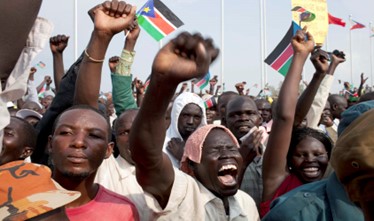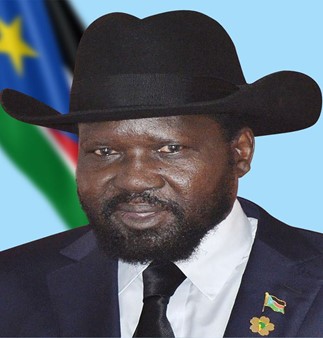
Wednesday 28 June 2023
South Sudan Celebrates Independence, 9 July 2023
By Joy Osiagwu
South Sudan is an East African country bordered by Ethiopia, Sudan, the Democratic Republic of Congo, the Central African Republic, Kenya, and Uganda.
Officially known as the Republic of South Sudan, it has a population of 11.5 million. The common languages are English, Dinka, Nuer, Murle, Luo, Ma’di, Otuho, and Zande.
With the most significant city Juba as its capital, South Sudan became independent on July 9, 2011, following the 2005 agreement, which ended Africa’s longest-running war in Sudan—making it the latest sovereign country with global recognition in 2023. The war killed four hundred thousand people and displaced millions.

With ten southernmost states of Sudan and home to over sixty prominent ethnic people, South Sudan has become one of the most diverse nations on the African continent.
Despite the freedom from Sudan, a civil war erupted in 2013 due to a misunderstanding between the president and the vice president. The crisis led to a conflict that displaced over four million people for over five years.
The power-sharing agreement (ARCSS) signed between the warring parties Salva Kiir Mayardit and Riek Machar in August 2018 brought respite as a coalition government was formed. Many refugees returned to South Sudan subsequently. The country is still among the world’s least advanced, with the poorest GDP per capita in 2022.
South Sudan is a member of the African Union, United Nations, East African Community, and the Intergovernmental Authority on Development.
Current Governance Structure.
The executive branch of the government has the president as the leader with a two-conservative five-year tenure. The National legislature comprises the National Legislative Assembly and the Council of States.

Salva Kiir Mayardit is the current and first president of the country. He assumed duty in 2011. He previously led the Sudan People’s Liberation Movement (SPLM) after the long-time rebel leader John Garang died in a plane crash on July 30, 2005.
Trending News
After the civil war, South Sudanese returning to the country still struggle to settle in areas riddled with mines left from the decades of conflict.
More than 5,000 South Sudanese have been killed or injured by land mines and unexploded ordnance since 2004, according to the U.N. Mine Action Service (UNMAS).
According to AFP News, more than eighty-four million square meters of cluster munitions and mines were cleared in twenty years, as the United Nations Mine Action Service (UNMAS) documented.
On the other hand, South Sudan has been working hard to clear all anti-personnel minefields and cluster munitions in the country by 2026.

South Sudan Ottawa Connection

The South Sudanese Community Association of Ottawa (SSCAO) was established to address issues arising in the South Sudanese community in the city of Ottawa and to find solutions to the community’s immediate challenges. The organization believes in the need to work together, develop the community in all aspects of human endeavor, and assert its presence in the broader community of Ottawa and Canada. The association has a public group on Facebook. https://www.facebook.com/groups/390344704317727/
Click on the link to read more about the community’s events covered by Black Ottawa Scene.
South Sudan community celebrates students’ graduation – Black Ottawa Scene
